Jazz
Jazz singing is very much about improvising, scatting, creating your own version of a song with other musicians and composing. Rhythm, is crucial to jazz singing as is exploring your own instrument, your voice and interacting with others in a band. Changing phrasing, notes and dynamics from what is actually written on the page is expected. Playing / Singing by ear and understanding chord structures is also crucial to becoming a versatile jazz vocalist.

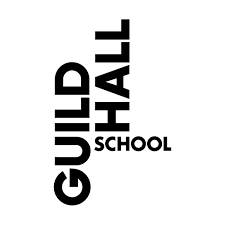
Guildhall School of Music & Drama
London
BMus Batchelor of Music Honours Jazz Pathway
Course Length
Entry Requirements
2 A Level’s, BTEC or equivalent.
Course Description
The Jazz Department at Guildhall School is one of the most renowned and established of its kind. Now in its fourth decade, the Department comprises an inspirational team of professors, led by Malcolm Edmonstone, who are uniquely placed to oversee the development of creative jazz musicians. Our core focus is the teaching of musics around the jazz tradition, including Studio and World specialisms, and preparing improvising musicians for high profile careers in the music industry.
As a Jazz student you will work within a dynamic and innovative curriculum in a supportive and creative environment, gaining the tools you need to thrive as an artist of the future. The Department provides a comprehensive programme of musicianship tailored for improvisers, including classes in aural, transcription and keyboard skills. The curriculum is broad in both style and discipline, and the Department celebrates the diversity of skill and experience needed to build a fulfilling musical life and career as an improviser.
Classes in Harmony, Improvisation, Jazz Rhythm, World Rhythm, and Style and Lineage support weekly tutored ensemble work in combos, to give you a creative outlet and build your collaborative skills. The comprehensive programme of musicianship is tailored for improvisers, including classes in aural, transcription and keyboard skills to develop your core musicianship.
Notational output is nourished in a wide-ranging programme of composition and arranging classes, from skills-based writing to small group composition, scoring for jazz orchestra and for strings and woodwinds.
Our annual Jazz Festival and the award-winning Guildhall Jazz Orchestra, Guildhall Jazz Band and a project-based Ellington Band give diverse opportunities for jazz performance.
The study of Jazz Vocals has long been a beacon of the Department’s work. In addition to bespoke classes in songwriting, four vocal ensembles exist for Jazz students: Guildhall Jazz Singers, Guildhall Voice Ensemble, Guildhall Jazz Choir and an a cappella group, the Guildhall Conchords.
At Guildhall School we place your specialism front and centre as we support both your core discipline and wider musicianship.
Principal Study lessons provide core instrumental and improvisational training and are tailored to your individual needs. In addition to specific jazz training, you will choose an additional study pathway of either Classical or Commercial music. These are designed to support instrumental and technical development, as well as specific notational and interpretative instrumental requirements.
Individual Singing Lesson? Yes
Audition Requirements
- Prepare one tune from List A and one tune from List B, sing the head and then improvise a solo. The lead sheets can be found at this link
A) Great American Songbook
- East of The Sun
- Just Friends
- I’ll Remember April
- Oh, Lady Be Good
B) Jazz Standards
- Recorda Me
- Lester Leaps In
- Blue Monk
- Confirmation
2. Submit some notation and a short commentary. This could be:
- A score or lead sheet of a piece you have composed, together with some notes about the piece (maybe describing the harmony, how you developed your melodic/rhythmic ideas etc.)
- Notation of your transcription (see 3 below) together with a short analysis of it.
- A page of preparation for soloing on one of the repertoire pieces – perhaps outlining guide tones, short phrases from solos you have heard on this piece etc.
These are only suggestions – they would like to see how you use music notation and the language you use to describe it. Hand-written music or computer notation are both acceptable. A PDF of your notes should be submitted at least a week before your audition.
3. Performance of an excerpt (minimum 32 bars) of a solo you have transcribed. You should perform this along with the original recording – please bring this on a device with a 3.5mm output jack.
Audition Format
A trio of piano, bass and drums will be provided for accompaniment
There are 4 elements to the audition
- Perform the two songs prepared from List A and B, including improvisaiton
- Notation plus commentary
- Transcription
- Interview – a short interview to talk about you and music
Fee’s
£114 Application Fee
£9250 per year
Dates
3 October – Application Deadline for September 2023 entry
13 July 2023 – Open Day
Application Route
Direct through Guildhall
Further Information
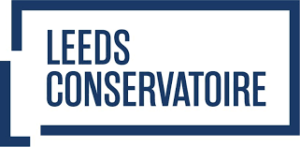
Leeds Conservatoire
Leeds
BA (Hons) Music (Jazz)
Combination degree’s are also available for more details check their website
3 Years Full Time
Entry Requirements
96 UCAS points normally to include A Level Music or BTEC Extended Diploma in a music related subject.
GCSE – 3 to include English Language
In the audition you will be expected to perform at a Grade 8 standard equivalent to ABRSM, LCME, Trinity College or Rock School and also demonstrate your music theory knowledge.
Course Description
Leeds Conservatoire developed the first Jazz degree in Europe. This course will develop you into a forward thinking creative artist grounded in tradition but with a hunger to take music to new dimensions. Improvisation is the very essence of jazz and a way of life here. They provide a uniquely supportive and collaborative space in which you can explore, experiment and create your own unique sound. You’ll play with jazz musicians from all backgrounds, raw talent to polished, purist to progressive. You’ll also benefit from working with students from other pathways, collaborating with producers, sound engineers, composers and entrepreneurs on your own independent projects. As well as one to one tuition with experts in your specialism you will form innovative ensembles, develop composition, musicology and critical listening skills, and receive expert advice and instruction from illustrious performers, composers and music industry professionals. Graduates have gone onto a wide variety of careers including recording artists, band leaders, composers and performers.
Individual Singing Lesson? Yes
Audition Requirements
Prepare and perform 2 songs from this repertoire list. You will perform with an ensemble, demonstrating improvisation, a simple arrangement of head in / solo / head out. Choose an appropriate key for yourself.
- A Child Is Born – Thad Jones
- All The Things You Are – Kern / Hammerstein
- Autumn Leaves – Kosma / Mercer
- Beautiful Love – Young / King / Alstyne / Gillespie
- Blue Bossa – Kenny Dorham
- Softly As In A Morning Sunrise – Hammerstein / Romberg
- Just Friends – Lewis / Klemmer
- Ladybird – Tadd Dameron
- Night & Day – Cole Porter
- Satin Doll – Ellington / Strayhorn / Mercer
Audition Format
You have the choice whether to audition online via portfolio submission or in person at our campus
In person auditions will allow a 30 minute warm up time followed by a 30 minute audition where you will sing with the Conservatoire ensemble.
- Perform your 2 songs
- Improvisation over a given chord progression at sight in an ensemble setting
- Sight read a short piece of music given to you at the audition
- You might be asked to sing some scales or technical exercises as appropriate for your level
- A short interview to explore your general music knowledge and interests
Fee’s
Leeds Conservatoire don’t charge an audition fee
Fee’s – £9250 per year
Dates
29 October 2022 – Open Day
w/c 24 October 2022 – Auditions
w/c 12 December 2022 – Auditions
Application Route
Via UCAS Conservatoire Institution Code L31 Course Code 403F
If applying for a combined course, check the course code.
Further Information
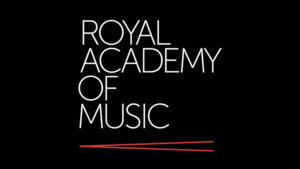
Royal Academy of Music
London
BMus (Honours) Jazz
4 Years Full Time
Entry Requirements
Musical Requirements
- Evidence of professional performing potential, sound general musicianship and a good aural response. There is no need to have taken formal practical music exams but they do expect the level of Grade 8 ABRSM. Music Theory Knowledge to the level of Grade 6 ABRSM is recommended.
Academic Qualifications
- Two A Level passes or equivalent
Course Description
Learn from an outstanding faculty of teachers whose experience covers the breadth of contemporary jazz practice. Since the formation of tits first jazz course in 1987, the Royal Academy of Music has steadily produced an outstanding array of creative, versatile and employable musicians. They encourage students to find their own creative voice and equip them with the skills needed to enable them to pursue a future as working jazz musicians. The Academy jazz course benefits from small numbers, enabling students to receive a personalised education and close support throughout their studies. You will have one to one lessons culminating in an end of year recital. Weekly ensemble workshops culminating in a public performance. Big Band projects which feature a wide range of repertoire, guest soloists, composers and directors. Each project culminates in a public concert. Excellent links with the jazz media and industry, regular seminars with journalists, broadcasters and record label owners. Composing, arranging, repertoire, improvisation, history, creative technology and supporting studies.
Individual Singing Lesson? Yes 30 hours per year of one to one tuition
Audition Requirements
- Prepare three contrasting songs, one each to be chosen from List A and B below, the third song should be either your own original composition or an arrangement of a song and provide a PDF concert pitch score. Sing the theme / melody / head on the first chorus and then two improvised choruses. Changes of key are permitted to suit your vocal range.
- List A – Medium up tempo standards – Airegin, Alone Together, Take The A Train, On Green Dolphin Street, I Mean You, It Could Happen To You
- List B – Ballad Standards – I Fall In Love Too Easily, Darn That Dream, Chelsea Bridge, I Should Care, Soul Eyes, God Bless The Child.
- Song 3 – either your own original composition or an arrangement of a song. Provide a PDF concert pitch score. If recalled you will also need to have parts for Rhythm Section and Bb Frontline.
Full audition details can be found on their website
Audition Format
- Round One – Via video recording. Submit two recordings a) A spoken introduction b)A single unedited single take to include your three songs performed either with a live band or a backing track
- Round Two – Either in London or Online. This may include a performance of one of your selected List 1 or List 2 pieces and a workshop performance of your free choice song. There will also be a sight-reading test, short harmony / theory paper and an interview.
All Applicants are considered for a scholarship award at Round Two.
Fee’s
Application Fee – £100 plus £27 UCAS registration fee
£9250 per year.
Dates
3 October – Application Deadline for UCAS Conservatoires
28 October – Upload Video Submission Deadline
14 – 18 November – Notification of progress to Round Two
December – Round two recall auditions
Application Route
UCAS Conservatoires Institution Code R53 Course Code 300F
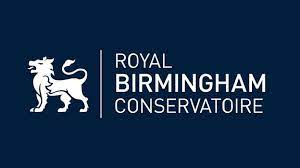
Royal Birmingham Conservatoire
Birmingham
BMus (Honours) Jazz
4 Years Full Time
Entry Requirements
32 UCAS Points
Course Description
The primary aim of the jazz department is to create a stimulating and inspiring culture for jazz musicians. As well as nurturing individual development, they place a great deal of emphasis on artistic exchange between students and staff, both within the Conservatoire and on the wider public stage, from local venues to international festivals. You will follow a curriculum dedicated to jazz performance on a course specifically designed to meet your needs. Because we are able to offer such specialised study, you’ll find yourself learning alongside a body of jazz students who are all highly focused and committed.
An outstanding team of tutors all of whom are highly respected artists in their field not only from the UK but also from the USA and Europe, giving a real breadth and depth to the range of jazz music represented here, as well as a greater scope for you to find a suitable mentor to watch over your individual development. The jazz scene in the Birmingham area is flourishing. They have a strong relationship with Jazzlines, the regions main promoter. There are three large ensembles for jazz students to join, Big Band, Jazz Orchestra and Jazz Composers Ensemble. There is a long running relationship with the Cheltenham Jazz Festival and an exchange set up by the Cheltenham International Jazz Festival and the Norwegian Embassy where jazz students share an international platform with students from Trondheim in Norway.
Individual Singing Lesson? Yes
Audition Requirements
- Prepare two contrasting songs. The first song should be from the audition list below, the second song is a free choice, it can be taken from the audition list or any jazz standard or original composition. If the piece is not from the given list then you will need to take copies of charts for each member of the band.
- Prepare to play through the chord changes of one of the audition pieces below on piano or keyboard.
Audition Pieces
- Any 12 bar Blues head in any key. Typical examples include Blue Monk, Now’s the Time, Sandu, Tenor Madness, Straight No Chaser, Relaxin at Camarillo
- Any Rhythm Changes in Bb concert. Typical examples include Anthropology, Oleo, I’ve Got Rhythm
- Ladybird
- Tune Up
- Green Dolphin Street
- I’ll Remember April
- Body and Soul
- Cherokee
- What Is This thing Called Love
- All The Things You Are
- Confirmation
- Yardbird Suite
Audition Format
You are given the opportunity to rehearse with the rhythm section for half an hour before the audition. You are expected to lead the rehearsal but the rhythm section will provide guidance and advice.
- Performance of your two contrasting songs
- Interview – discuss knowledge of music, artistic influences, what inspires you to be a jazz musician and career objectives.
- Possible tests in Sight Reading, Keyboard Skills, Aural and Interactive Test.
Fee’s
Audition Fee – £75
UCAS Application Fee – £27
£9250 per year
Dates
1 December – Open Day
Application Route
UCAS Conservatoires Institution Code B34 Course Code 310F
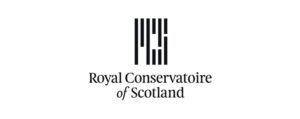
Royal Conservatoire of Scotland
Glasgow, Scotland
BMus (Honours) Jazz
4 Years Full Time
Entry Requirements
A Levels – 2 Passes
Scottish Highers – 3 passes
Course Description
The Jazz department, led by Professor Tommy Smith OBE, internationally renowned saxophonist and major force in European Jazz, is vibrant and energetic, and continues to produce successful musicians and new voices within the UK jazz scene. The Royal Conservatoire offers a high level of training aimed at cultivating your development as a creative and versatile jazz performer. This programme explores jazz in the broadest possible terms, and provide the opportunity to play, perform, compose and record in many different jazz styles and settings. This is the only full time degree level jazz course in Scotland and offers many creative and artistic opportunities to you as a performer across a wide ranging curriculum.
You’ll receive tuition from some of the finest jazz musicians and educators in the UK. Currently we offer individual lessons on your principal study instrument, with the opportunity to study a second instrument made available across all four years of study. This allows you to maximise your instrumental skills and nurture your creative potential as an artist.
The BMus programme is delivered to a small, focused cohort of students in each year group that form a unique ensemble and grow together throughout the BMus jazz pathway towards graduation. As a student, you are also encouraged to interact with other year groups and students from other disciplines across the RCS in the spirit of our cross-disciplinary curriculum.
Through class teaching in our dedicated jazz studios, you’ll study the essentials of chord-scale harmony, improvisation, classic repertoire, composition, history, music business and arranging. Our vision of jazz is comprehensive and inclusive, and you’ll be introduced to the full range of contexts from solo and ensemble work through to big band settings.
Studying Jazz at the Conservatoire provides numerous opportunities to perform both in and out of the institution. On campus are our Blue Mondays concerts (also streamed live on the internet), featuring students and tutors, often performing alongside special guest performers. Past clinicians have included Makoto Ozone, Courtney Pine, Jacqui Dankworth, Branford Marsalis, David Liebman, Peter Erskine, Paolo Fresu, Bill Evans, Bob Mintzer, Randy Brecker and Arild Andersen. Students also take part annually in a BBC broadcast recording for Radio Scotland’s Jazz House programme, in which they perform their own compositions. In addition, 4th year students each year undertake a 3-day recording and mixing session with Nimbus Records, resulting in an album release on the record label.
The Jazz department maintains close ties with the Scottish National Jazz Orchestra. This relationship with what many consider Europe’s foremost contemporary big band has given students in Jazz at the Conservatoire access to performances and rehearsals by Kurt Elling, John Scofield, Gary Burton, Joe Lovano and Gunther Schuller .
Previous students of the Jazz department have been recipients of the prestigious Yamaha Jazz Scholarship, with pianists Peter Johnstone and Utsav Lal obtaining scholarships in 2013 and 2014. They also recorded a CD for the cover of Jazzwise magazine, and performed at the Houses of Parliament in London.
As a Jazz student at RCS, you will reap the full benefits of highly modern academic facilities, combined with the highest quality teaching in a city brimming with jazz, and a country resplendent with artistic opportunity.
Individual Singing Lesson? Yes
Audition Requirements
- Prepare Oleo by Sonny Rollins (Rhythm Changes), choosing the correct key for you. Melody Form is AABA (32 bars), the improvisation length should be 3 x AABA, tempo medium to fast.
- Prepare a contrasting Jazz Standard, Even, 8th, Latin, Ballad, 3/4, Original. Avoid Rhythm Changes or Blues.
There is an option to book an advice lesson with one of the tutors to gain some expert advice and insight. These normally take place from late August to early October
Audition Format
After applying you will be emailed details of the audition.
Perform your two contrasting songs as outlined above.
Fee’s
UCAS Application Fee – £27
Audition Fee – £65
£9250 per year
£1820 per year for Scottish Students
Dates
3 October – Application Deadline
17 October – Audition Recording Deadline
November – Auditions in person
Application Route
UCAS Conservatoire Institution Code R58 Course Code 303F
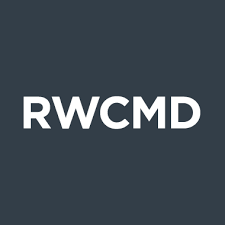
Royal Welsh College of Music & Drama
Cardiff, Wales
BMus (Hons) Jazz
4 Years Full Time
Entry Requirements
2 x A level’s including A Level Music, although not essential or equivalent
Grade 5 Music Theory ( ABRSM or Trinity College)
Course Description
Immerse yourself in tailored, professional training with some of the UK’s finest jazz musicians. You’ll study in small groups with unrivalled opportunities to perform and become part of a thriving jazz scene. You’ll have one to one lessons with multiple leading UK professional musicians, not just one. These tutors all have different approaches and specialisms, so you can determine what works best for you and then adapt your training throughout the course. You’ll examine jazz repertoire and style, learning about origins, jazz development through the decades. There’ll be plenty of opportunities to collaborate, setting up ensembles with fellow jazz students and working with other music departments within the college.
Individual Singing Lesson? Yes
Audition Requirements
Prepare and record a programme of between 8 – 10 minutes. This must include at least 2 contrasting songs which must include one Parker blues or rhythm changes, with the other song/s chosen from jazz standards, contemporary jazz or include one original composition. Your performance should include a substantial percentage of improvisation and use recorded accompaniment; iReal, Abersold for example, or self-generated accompaniment are all acceptable forms.
Audition Format
Audition initially is via recorded video submission.
Please also note that presentation (dress, deportment and general stage demeanour) will enhance the impact of your audition. Audio only recordings will not be accepted. Please upload a copy of an arrangement or composition you have created with your recorded audition.
If successful with your video submission you will be invited to a follow up audition either in person or online.
Further Audition Guidance can be found on their website
Fee’s
Audition Fee – £63
UCAS Application Fee – £27
£9,000 per year
Dates – for September 2023 entry
15 July – Applications Open
3 October – Applications Close
22 October – Open Day
31 October – 9 December – 2nd Round auditions
Application Route
UCAS Conservatoires Institution Code R59 Course Code 310F

Trinity Laban
London
BMus (Hons) Jazz
4 Years Full Time
Entry Requirements
Grade 8 Standard in Singing
3 GCSE’s at Grade C or above including English Language
2 A Level passes including Music
Course Description
Aimed at jazz performers with outstanding potential, creative flair, and a hunger for musical adventure, the BMus (Hons) programme will prepare you for the diverse demands of the jazz profession.
Key Features
Whilst studying on the BMus (Hons) programme you will:
- create music as a jazz instrumentalist/vocalist at a level that will prepare you to enter the profession on graduation
- establish a secure artistic identity and develop a range of sophisticated professional skills
- perform as a soloist, in small and large ensembles, to a diverse range of audiences
- gain an understanding of the music profession and its audiences in contemporary society
- develop collaborative, innovative and entrepreneurial skills
- develop your communication skills to a professional level as an artist through your instrument/voice/compositions
- engage audiences through informed discussion and written work
By the end of four years of professional training, you will have an established individual musical identity underpinned by strong technique and musicianship. You will have developed keen awareness of a range of performing practices and traditions as required by the contemporary music profession. You will have the opportunity to develop supplementary musical skills and knowledge which will enhance your employability and support you in entering the career pathway of your choice. There is an emphasis on learning through practical activities in all elements of the programme.
The Jazz Singers’ Pathway enables singers to personalise their vocal study, allowing a degree of flexibility distinct from instrumentalists.
Individual Singing Lesson?
Audition Requirements
Prepare two contrasting songs, either two jazz standards or one standard and one original song that best illustrates your interest and ability in areas of music that involve improvisation. Some knowledge of jazz based improvisation should be demonstrated, but non-jazz improvisation may also be employed.
Audition Format
The audition will last 30 minutes and you will be backed by a band consisting of drums, bass and guitar or piano. There are usually two people on the audition panel usually the head of department and a specialist in Jazz Voice.
- Perform your two songs with the jazz band provided, backing tracks are not allowed
- Interview to discuss your past training, achievements and musical aspirations aswell as musical interests.
- Improvise over changes by ear and from reading chord symbols
- Repeat phrases played by a member of the audition panel
Please note that microphones will not be provided, if you wish to use one please provide your own
Fee’s
£9250 per year
Dates for 2023 entry
3 October – Application Deadline
Mid November to Mid December – Auditons
Application Route
UCAS Conservatoires Institution Code T75 Course Code 310F
